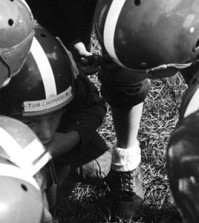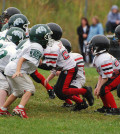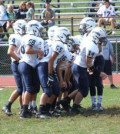- Youth football participation declines as worries mount about concussions
- NFL safety boss says the league could ban helmets one day
- Fayetteville-Manlius Pop Warner to use Guardian helmet caps beginning this season
- Youth Football has a Concussion Problem
- ‘Blindside block’ rule gains two-year trial in Oregon high school football
- Ex-Michigan LB Dhani Jones in favor of removing helmets from football for safety
- Seven tips to keep kids safe from summer heat during practice.
- Early retirement of 49ers Borland spurs discussion of youth football safety
8 Effective Listening Skills for Sales Professionals
 One of the main qualities I look for in a player is listening skills, but that is a two way street. As a coach, you need to listen to what your players are telling you and as the leader be able to decipher what is relevant and what is noise. Great read here.
One of the main qualities I look for in a player is listening skills, but that is a two way street. As a coach, you need to listen to what your players are telling you and as the leader be able to decipher what is relevant and what is noise. Great read here.
When you meet a potential client for the first time you should listen more than you should speak. By performing effective listening you will gain important sales intelligence, but you will also show that you are genuinely interested in building customer relationships and that you are more interested in them than just closing another sale. Listening effectively also signals to the client that you want to build a relationship, that you care about their challenges, and that you will be credible when presenting solutions. Developing good listening skills is something that is easier said than done. It sometimes goes against our first impulse which is to try to impress and influence people. As a sales professional, it is important to practice active listening, wait before your talk and never interrupt. In fact, if possible, you should ask a colleague to see if you are talking when you should be listening. Our first impulses can be subconscious.
8 Effective Listening and Communication Principles for Success
Maintain eye contact in a natural and appropriate way
Observe the body language of your audience
Practice Patience
Listen empathetically and listen to understand
Make sure you clarify any uncertainties to minimize communication barriers
Dont make conclusions or assumptions
Practice pure listening.
Prepare to focus on the client See more…









0 comments